In 1911 the Sisters of the Order of St. Basil the Great arrived in the United States with an enormous task at hand and few resources to accomplish it. They came at the request of the bishop of Ukrainian Catholics in the United States. He had found himself the shepherd of a flock of desperately poor, illiterate people, with many orphans among them.
He knew the Basilian sisters of his home country had the dedication, education and energy to lift up this community. Their arrival is depicted in this painting that was gifted to the sisters.
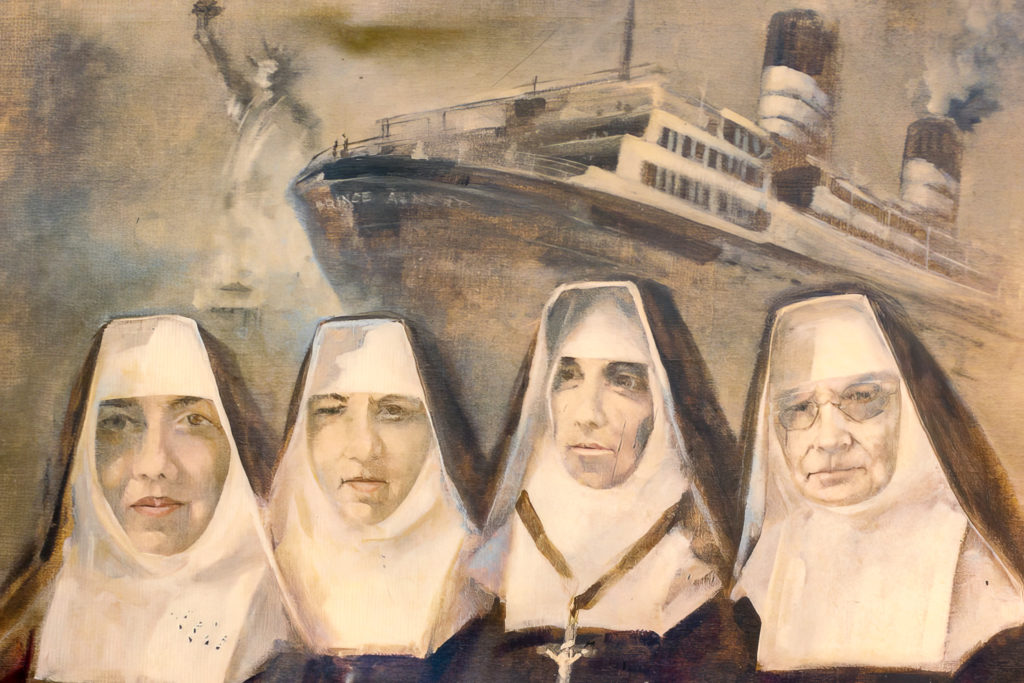
The sisters had to get creative to support their ministry, such as establishing a carpet-weaving business and a printing press to finance a new orphanage and schools.
Because of these efforts, Ukrainian children came of age in a safe environment, with quality education, strong values and a committed faith.
Today, these Basilian sisters, who are the recipients of our 2023-2024 Lumen Christi Award, are helping Ukrainian immigrants once again. Since the outbreak of war almost two years ago, they have been serving Ukrainian families arriving in America as refugees.
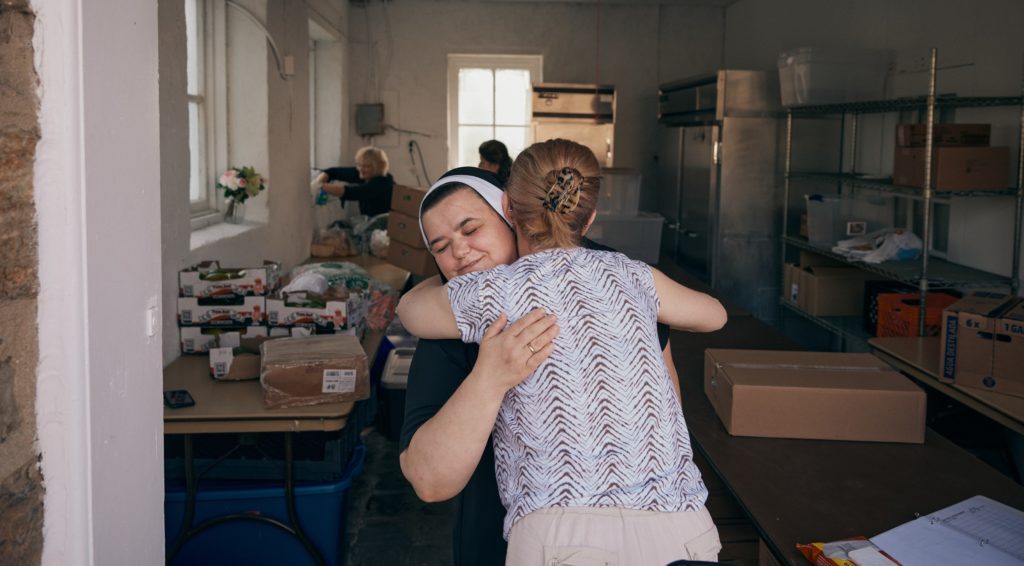
The Basilian sisters’ story is part of an enormous multinational and multigenerational group of Catholic sisters who have for centuries accompanied immigrant people in America to bring the care of the Church.
One of the most renowned of these sisters is St. Frances Xavier Cabrini.
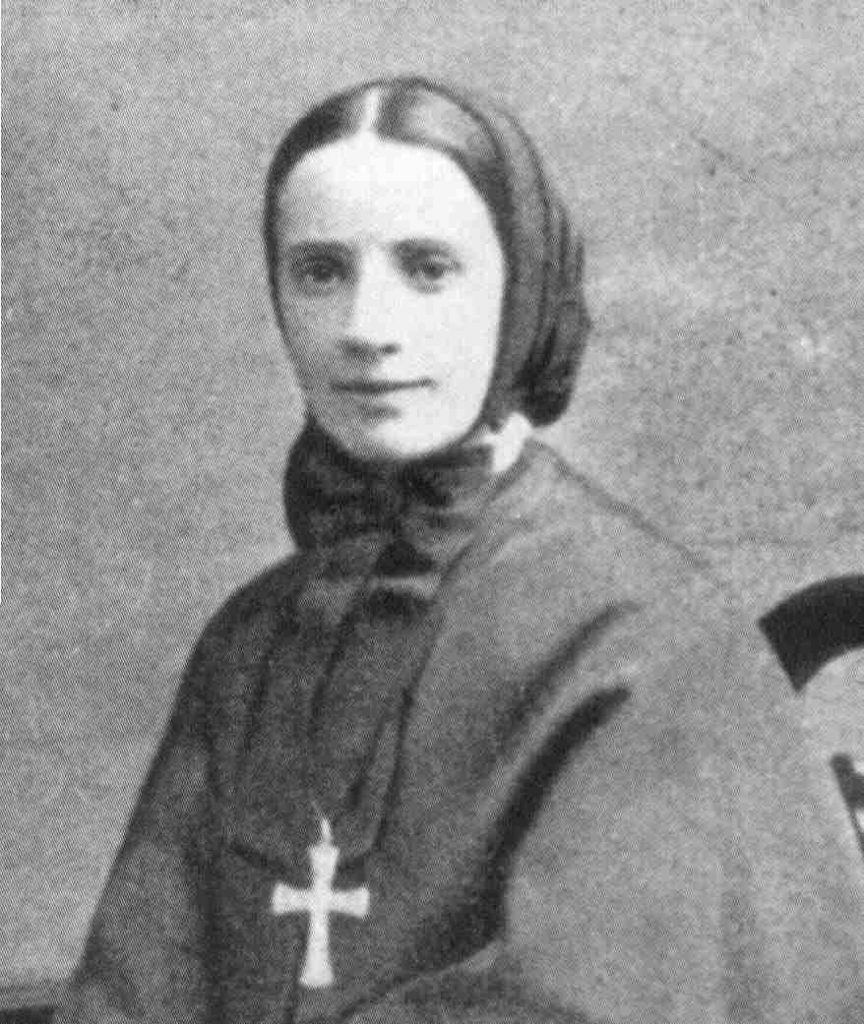
She came to the United States from Italy to serve immigrants from her homeland by opening schools and orphanages.
Catholic Extension Society’s founder, Father Francis Clement Kelley, gave the homily at the future saint’s funeral in Chicago in 1917, recalling in amazement the impact this one woman had on so many.
Through their entrepreneurial work with the poor and suffering, Catholic sisters have not just grown the Catholic Church in the United States but also advanced American society.
Trailblazing women
Until recent generations, many people did not see women as destined for anything outside of the home. For centuries, religious sisters helped change these limited understandings of “women’s roles.”
During the Civil War, for example, Catholic sisters were a source of trained nurses. Their work on the battlefields and POW camps helped save thousands of soldiers’ lives.
Among the wounded Civil War soldiers attended by the sisters was the famous author and adventurer John Wallace “Captain Jack” Crawford.
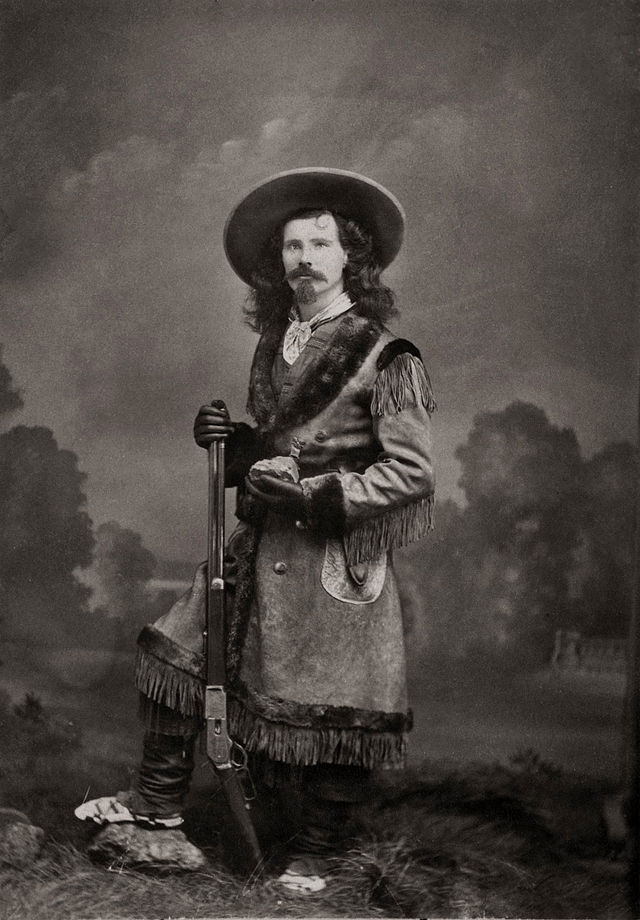
He is quoted in a 1915 issue of Extension magazine as saying,
I am not a Catholic, but I stand ready at any and all times to defend those noble women, even with my life, for I owe that life to them.”
In addition to health care, which included the founding of hundreds of hospitals, Catholic sisters taught generations of children, from one-room schoolhouses on the frontier to massive institutions in large cities. In particular, they ensured quality schooling for girls who didn’t have many educational opportunities.
In 1915 Catholic Extension Society dedicated an entire issue of Extension magazine to the topic of nuns in America. At that time, more than 30,000 nuns were teaching over 1.5 million students.
An article titled “The Army of Teaching Sisters” details their extensive impact in the country’s classrooms.
The nuns “became part of the history of the country by their fine spirit of fortitude and endurance and by their inspired desire to give their best to the community of which they made themselves a part. They suffered all the hardships of the pioneer, and they did not reap the pioneer’s reward and the credit of trail-blazing. The reward received, however, was the result of their work in the training of the children devoted to their care.”
Another article titled “The Ministering Sisterhoods” details the life-giving work of sisters caring for orphans, the homebound, the sick and the disabled.
This painting by Jules Trayer, printed in the September 1915 issue of the magazine, was captioned “a work of mercy.” It illustrates the devoted care of sisters.
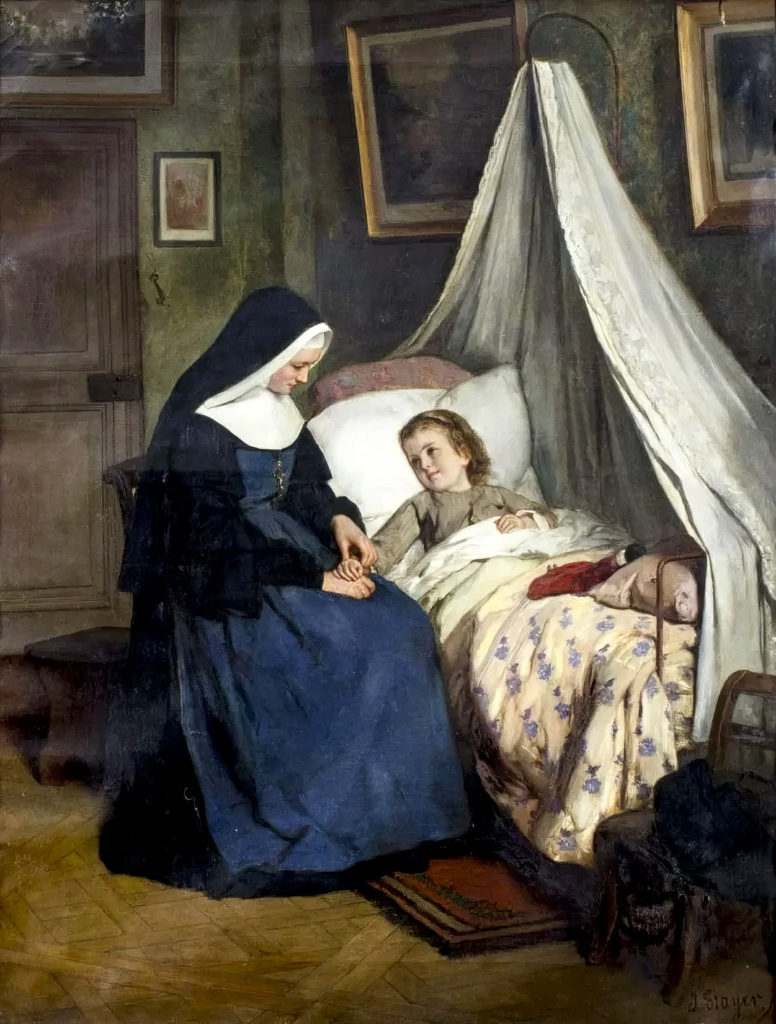
The article states that if the sisters’ ministries were suddenly wiped out, “it would mean that 284 orphanages would be closed with 45,742 orphans thrown on the care of the State. It would mean that 115 homes for the aged would be darkened.”
Home-grown talent
Many American-born Catholic sisters followed in the footsteps of these pioneering immigrant nuns. Channeling the same entrepreneurial spirit of the sisters who influenced them, they founded orders in America.
This includes Sister Henriette DeLille, who was born in New Orleans, Louisiana, and taught by Catholic sisters. She founded the Sisters of the Holy Family, an order of Black nuns, to care for orphans and the sick as well as to teach slaves when it was illegal to educate them.
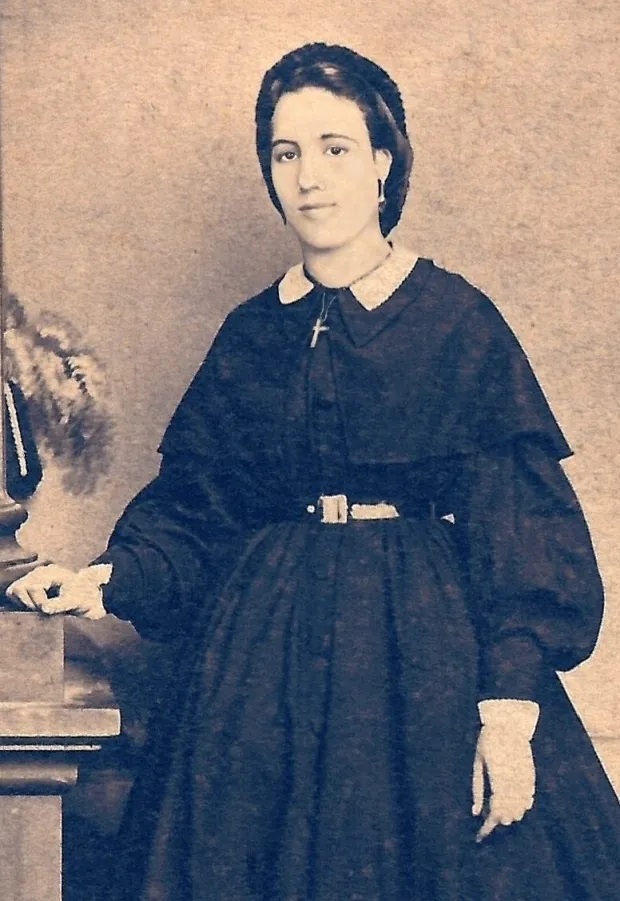
St. Katharine Drexel, born wealthy, defied societal expectations and established the Sisters of the Blessed Sacrament to care for Black and Indigenous communities.
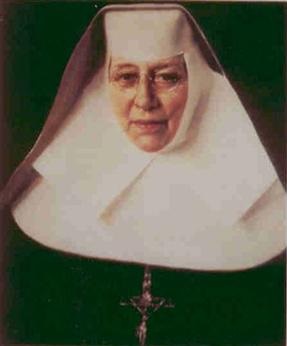
The amazing stories of self-sacrifice, creativity and perseverance of Catholic sisters in American history are endless. Today, immigrant communities, particularly from Latin America and Asia, are strengthened through the presence of Catholic sisters from the Global South, just as the Irish, Italian and Eastern European immigrant communities were 150 years ago.
Catholic Extension Society has been proud to support more than 1,000 women religious in their work in the past several years.
This includes Eloísa Torralba Aquino, below. She is a Missionary Sister of the Sacred Heart of Jesus Ad Gentes and serves Hispanic families in rural Tennessee.
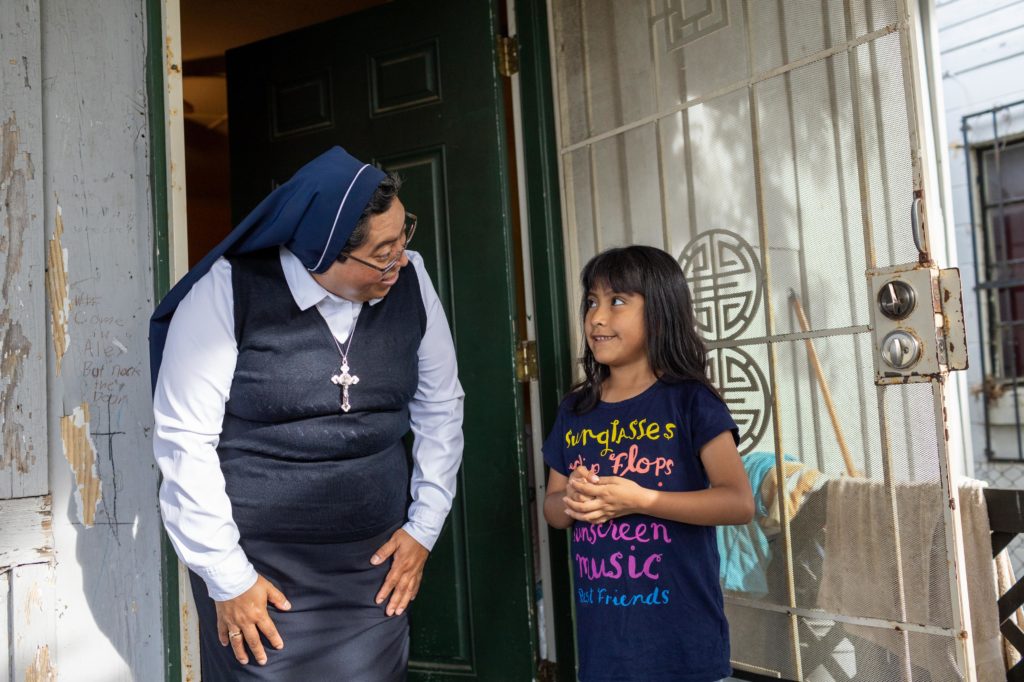
Catholic sisters today as essential to the building up of our country now as ever. Please support Catholic Extension Society to help their vital work!


